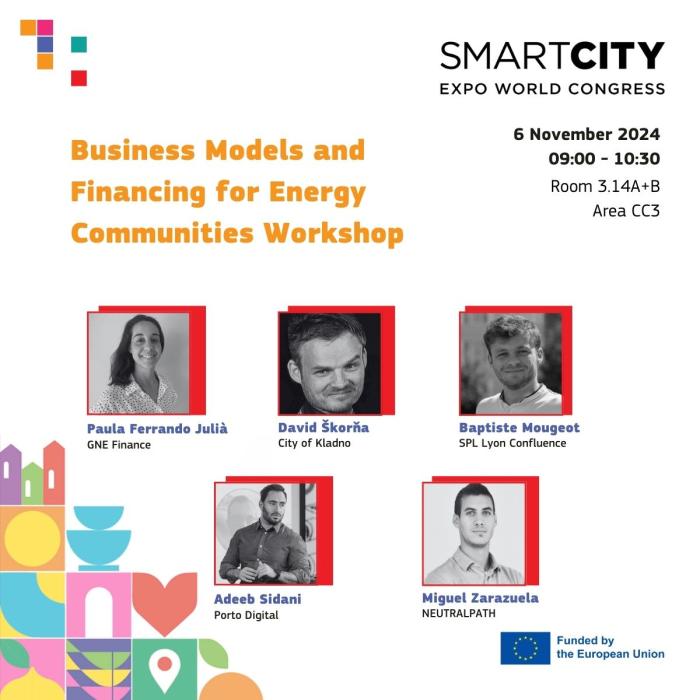
The Business Models and Financing Workshop at the Smart Cities Expo World Congress on 6 November focused on innovative business models for energy communities across Europe, fostering an engaging and interactive discussion that highlighted successful financing strategies, digital tools, and community-building approaches. Building on successful cases from the Scalable Cities Task Group on Energy Communities, ASCEND cities of Porto and Lyon, as well as the NEUTRALPATH cities of Dresden and Zaragoza, the workshop explored the financial and strategic foundations essential for establishing effective energy communities.
The recent Scalable Cities Roadshow held in Kladno, Czech Republic, provided valuable input on developing viable business models for energy communities. Paula Ferrando, Project Manager at GNE Finance, and David Skorna, Energy Expert with the City of Kladno presented on the role of cities in fostering energy communities. Key challenges identified during the Roadshow included the high costs and lack of infrastructure for energy storage, with a report on these findings set to be released soon.
Selina Lorenz, Research Associate at St. Gallen University, shared key takeaways from the Business Models Workshop held in Porto in July 2024, where the focus was on adapting financial models to specific city and regional contexts.
Baptiste Mougeot, Project Manager at SPL Lyon Confluence, presented the business case for Lyon's Confluence area, a former industrial site being transformed through collective self-consumption of photovoltaic energy. He highlighted initiatives like "Ydeal," which enables local residents to benefit directly from renewable energy without selling it to the grid, demonstrating the potential for community-driven energy solutions.
Adeeb Sidani, Project Manager at Porto Digital, then discussed Porto’s innovative approach to integrating seven social housing units into a broader energy community in a wealthier area, stressing the importance of developing tailored business models that address the unique needs of diverse neighbourhoods.
Miguel Zarzuela, EU Project Coordinator At CIRCE, discussed the NEUTRALPATH Project by providing an overview of Zaragoza's Positive Clean Energy District, which includes two social housing developments and four public buildings. The project integrates advanced heating and cooling systems, heat pumps, photovoltaic installations, and battery management with bidirectional chargers, achieving 15-25% savings on electricity bills. The city plays an essential role as a funder and navigator of complex legislative frameworks, helping to ensure the long-term sustainability of Zarzoga’s PCED.
The panellists underscored the critical role of adaptable, community-based approaches in building sustainable and scalable energy communities, highlighting the diverse strategies that cities can employ to overcome challenges and achieve long-term success.
